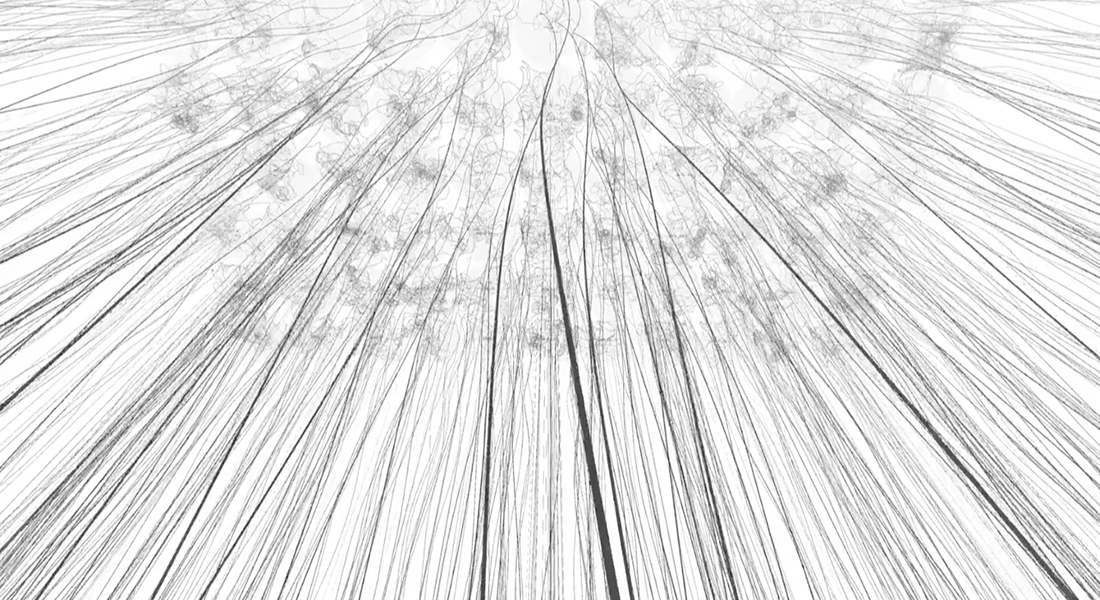AI Art/Aesthetics: Critical Practices
How can aesthetic practices critically engage with generative AI-technologies? This research seminar explores critical aesthetic practices with artificial intelligence generators of images, text, and video.

Widely used generative text-to-image applications enable aesthetic creation through the employment of deep learning and neural networks, translating prompts of concepts and descriptions into visual representations. As the volume of AI-generated image content surpassed the total number of images captured during the first 150 years of photography within just a year and a half (Everypixel Journal 2023), we can fathom the profound implications AI has on art and visual culture.
In this seminar, we want to engage with the assumption that AI generators of visual content merely reproduce the visuality already present in the underlying datasets, and ask: How can aesthetic practices critically engage with generative AI-technologies?
Responding to this challenge, the seminar will explore questions relating to critical aesthetic practices with machine learning: How can generative AI technologies be imagined, deconstructed, and exposed through critical aesthetic practices? How can artistic practices with AI technologies reveal the conditions and effects of generative machine learning technologies, including the imbalances of power, access, and extraction they entail? How might aesthetic diversity, ambiguity, and autonomy be upheld through the generative processes of these technologies?
Speakers and bios
The seminar is structured around presentations by a researcher and two artists who critically work with and through AI technologies: Ariana Dongus, Cecilie Waagner Falkenstrøm, and Hana Yoo. Their practices will provide inroads to the emerging interdisciplinary research field of Critical AI.
Ariana Dongus (she/her) is a Berlin-based critical media scholar, teacher, and researcher. She spent 2018-2022 as a research associate at the University of Arts and Design in Karlsruhe, teaching media theory and coordinating KIM, a critical AI studies group. Her work is dedicated to the social aspects of AI, digital labor exploitation, and invisible infrastructures, aiming to critique today’s digital economies from below. She is currently a Research Fellow at TU Dresden, exploring new forms of labor in relation to machine ‘intelligence’. In 2021, she was awarded the AI Newcomer Award. Her research and writing are regularly featured both internationally and nationally in journalistic reports, essays, and lectures.
Cecilie Waagner Falkenstrøm uses artificial intelligence (Machine learning, LLM, GPT, GAN, diffusion) to create artworks that provoke reflections about our human engagement with technology. Themes explored within the artistic practice range from matters of data bias and power dynamics, as enforced by technological systems, to digital seduction and anthropomorphism expressed within humanized artificial intelligence. Hereby, combining discourse theory and philosophy of human existence, with cognitive sciences and software engineering in the creation of the work. Cecilie’s work has been awarded international awards, including winning the Lumen Prize twice, has been featured in news outlets such as Forbes and The New York Time, and has exhibited internationally; most notably at the Victoria and Albert Museum, Ars Electronica and The International Space Station.
Hana Yoo is interested in investigating the collective anxiety and transcendental experiences, formulated from the natural-artificial process of reversing perspective. Working in film and multimedia installation, she engages with the allegory of nature and technological appropriation in the context of human-environment transformation and reconstructs them through storytelling. Her works have been shown internationally at museums and festivals including the Fotomuseum (Winterthur, CH), European Media Art Festival (EMAF, DE), and Busan International Video Art Festival (Busan, KR) among others. In 2022, she was awarded the Berlin Art Prize.
A proposed triangulation of three possible artistic approaches to working critically with, through, and on AI will frame our discussion:
- AI imaginaries – practices of conceiving and creating imagery through machine learning applications, as well as imaginaries about the delimitations and potentials of AI;
- AI deconstructions – studies of the effects and affects fostered by AI and the relation to the technology’s cultural history, including the deconstruction of the technology itself;
- AI exposures – examinations revealing the technological and systemic conditions of AI and its potential to conduct investigative practices into realms of power and control.
Registration
To participate, please register by 7 May 2024 by email: tst@hum.ku.dk
This seminar is supported by the European Union’s Horizon 2020 research and innovation programme under the Marie Skłodowska-Curie grant agreement N° 101028379. It is realized within the frameworks of the Center for Art as Forum and the Digital Culture Research Cluster and an inaugural initiative of the Algorithms in Art project funded by the Novo Nordisk Foundation.
Map of South Campus
View directions.
View on map of the Faculty of Humanities - South Campus.
View map of South Campus (pdf).
